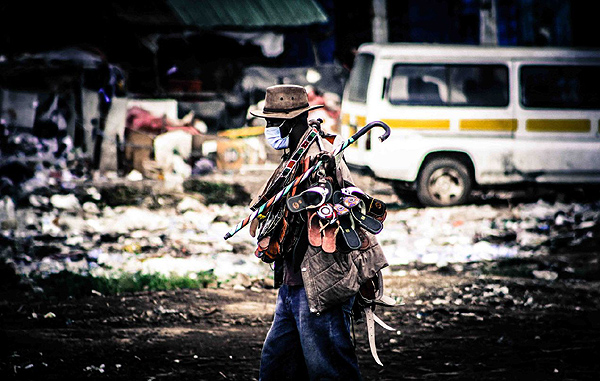
Every citizen in sub-Saharan Africa expects Wave Three at any moment. The vaccination rate is only around 1% with the bulk of that in Kenya and Zimbabwe (although Zimbabwean health reporting is under serious scrutiny), and winter is right around the corner when viruses thrive.
So the vaccination slugfest in sub-Saharan Africa is scheduled to hit a major turning point momentarily. What can we predict?
Some Kenyans believe just a few percent of its population vaccinated sufficient to open up since virtually all those vaccinated are in the big cities. It would be nice for someone to render that 2% national rate onto the city of Nairobi, for instance. Simple math makes it around 10%. That doesn’t seem too compelling but perhaps simple math doesn’t work.
South Africa predicts a hyper-effort of new vaccinations starting right now after colossal missteps that squandered more than 100 million doses.
But whether the concentration of urban vaccinations in Kenya or the “hyperdrive” of new vaccinations in South Africa is sufficient to mitigate a devastating Wave Three is hard to say.
The outbreak is likely to follow simple historical and climatic trends. Sub-Saharan Africa is entering its fall and winter when viruses thrive.
So many commentators are growing philosophical about the lack of available vaccines and their own governments’ incompetency. Some are even trying to paint a brighter side to what is probably a dismal outlook.
The greatest failure in sub-Saharan Africa, if not Africa as a whole, is the situation in South Africa. After partnering with AstraZeneca at the same time that the Trump administration partnered with Pfizer, the bumps in the road with AZ’s rollout resulted in South Africa banning the vaccine it had gambled on.
Many saw that second mistake as worse than the first, as AZ ultimately proved good enough.
Then the country began to rely on the world consortium, Covax which is rather like relying on the U.S. postal service to deliver mail-in ballots in Alabama.
Finally several months ago South Africa realized that going out and getting its own contracts was the best approach.
So now South Africa has vaccine arriving on its own direct contracts.
Remarkably in Kenya – which relies on Covax, a vibrant black market in vaccines and government-sanctioned, expensive paid-for doses — twice as many people percapita are so far vaccinated as in South Africa. So many Kenyans are feeling pretty good about their otherwise dismal situation.
“We can count how many amazing things COVID-19 took away from us, and we can also choose to see what COVID has done for us,” writes Kenyan Zindzi Kibiku on the “Covidhq Africa” forum.
Kibiku points out how wonderful social distancing is, a massive break with a culture used to pushy lines and squeezed shoppers.
“Never in a million years would I have guessed that one day matatus would have a sense of decorum and cleanliness,” he exclaims referring to the hailing 8-passenger minivans that before Covid were legislated to limit passenger capacity to 11 people, down from a previous law of 14!
“If we could continue with social distancing in public transportation,” he pleas, “That would be amazing, so can we? Yes? Thank you!”
Most importantly Kibiku points out how everyone now regularly washes their hands at every opportunity. And how every home now has “a small bottle of hand sanitizer right next to our doors for incoming guests.”
“If you ask me, our personal hygiene has increased as a society.”
Silver lining?
That remains to be seen. It’s hard for me to imagine Kenyan matatus without suffocating passengers or hand sanitizers in Westland homes quickly drying up once the virus is gone.
I think this is rather a reflection of African fatalism, the nuts-and-bolts of any modern African survival in a world controlled by the rich West.
But why not the appeal to the scientifically accepted notion that this virus will not end until the whole world is vaccinated? That the longer we wait to begin this herculean task the more likely uncontrollable variants will emerge?
Because nobody really believes that.
Nobody believes the virus will be eradicated. It’s now with humanity forever. The rich – as they always have – will get annually vaccinated. The poor will just get sick and die, or develop painfully earned immunity, or learn to live with another malaria, typhoid or TB.
It’s just the way of the world.